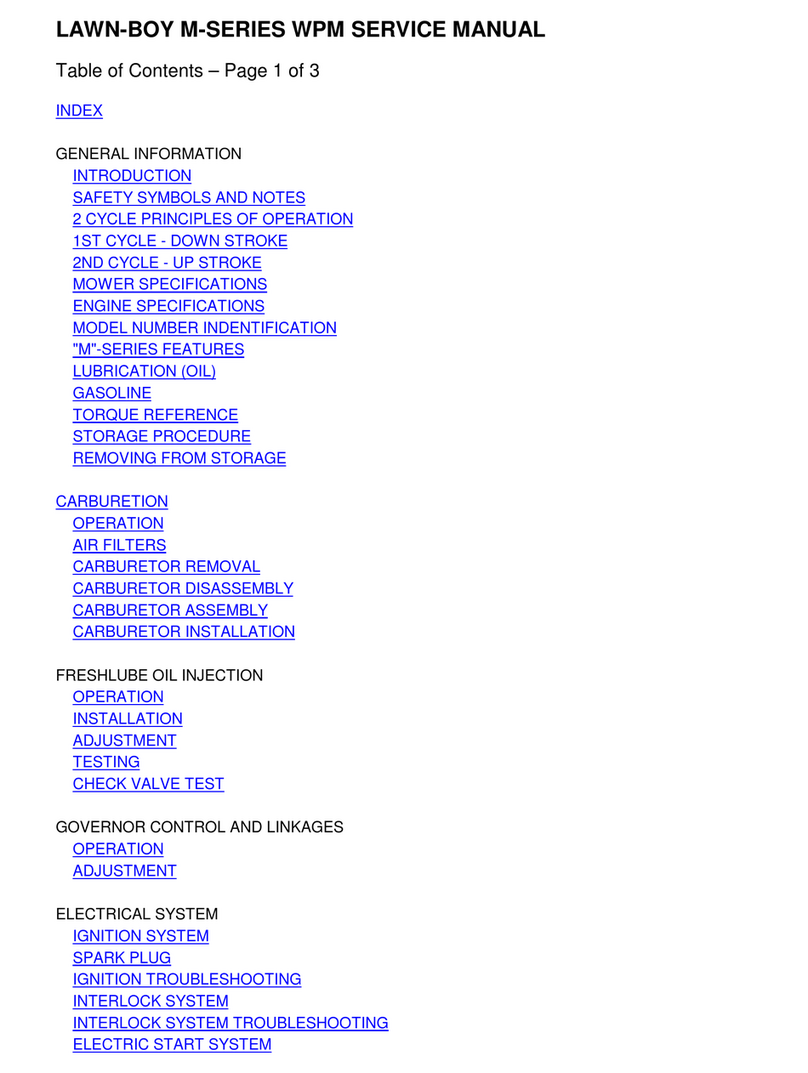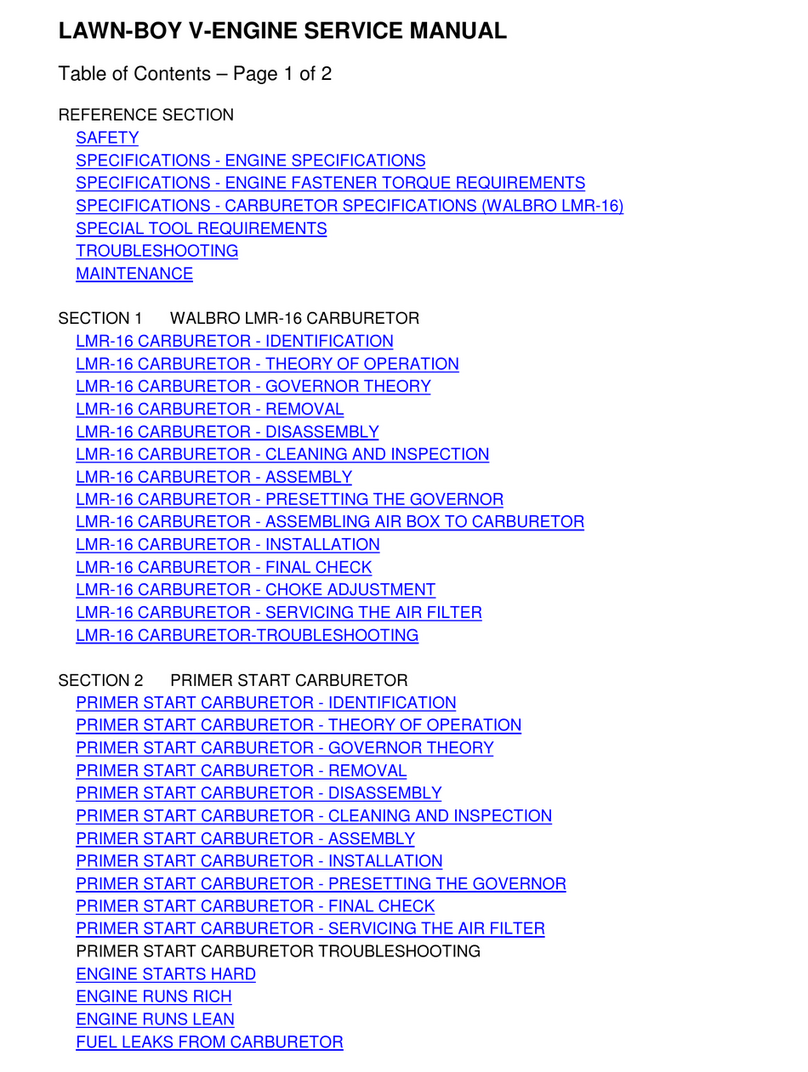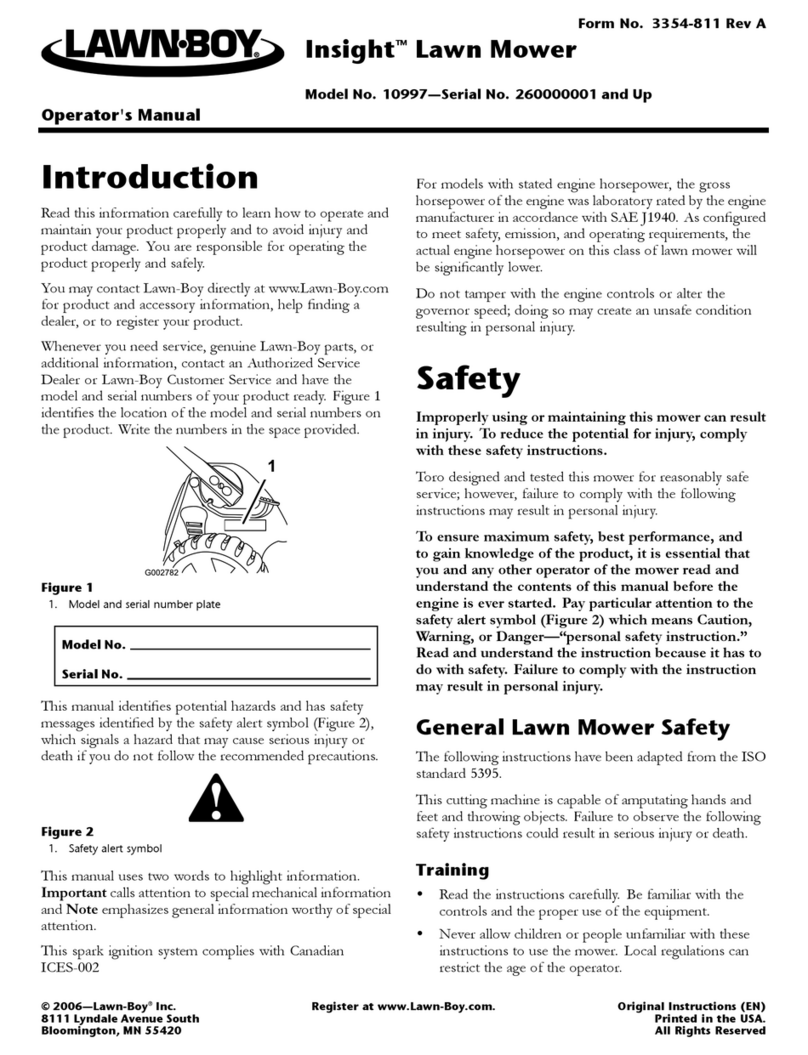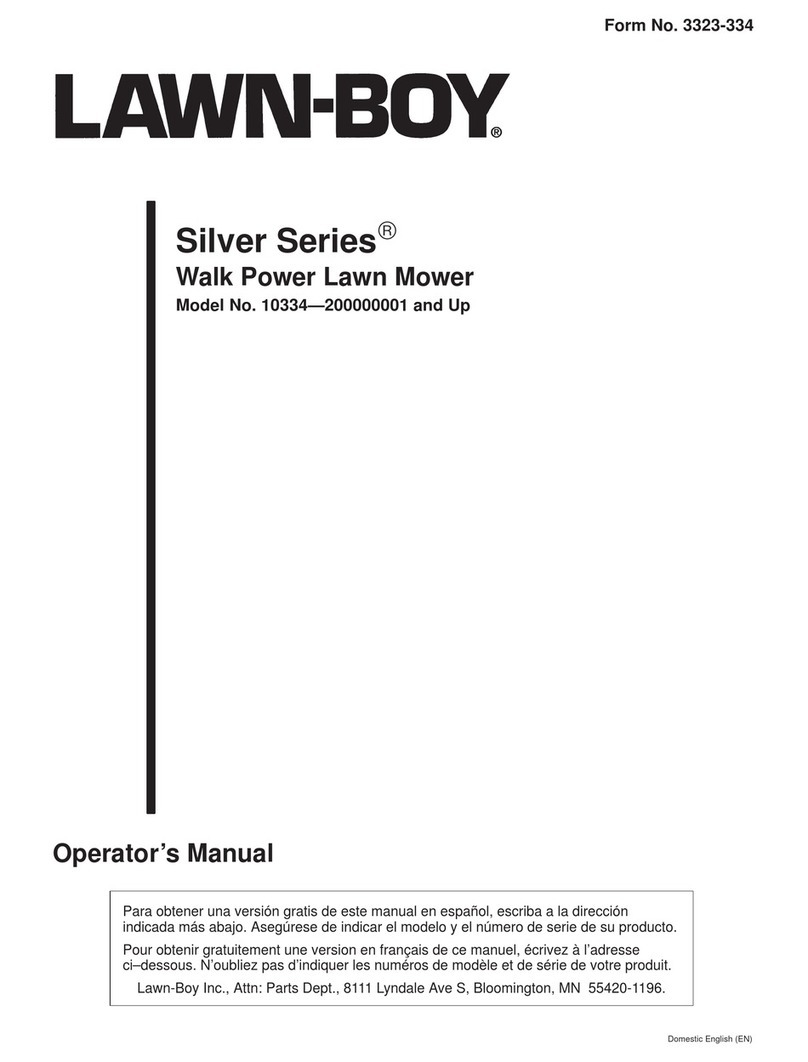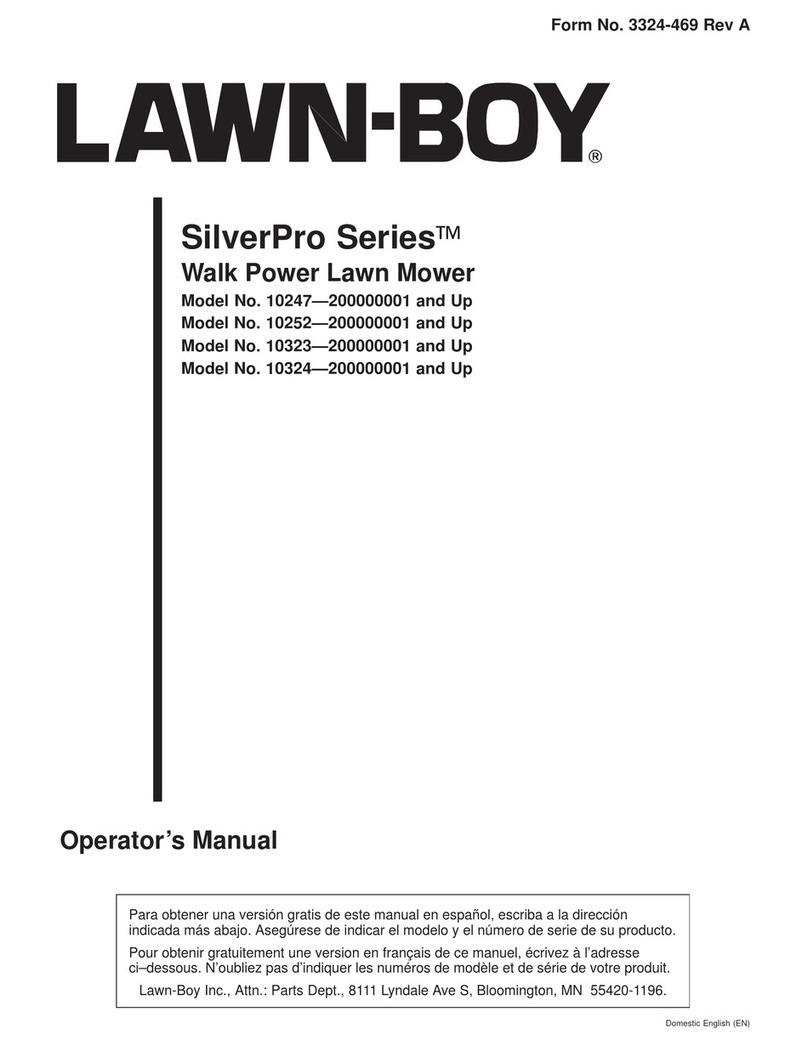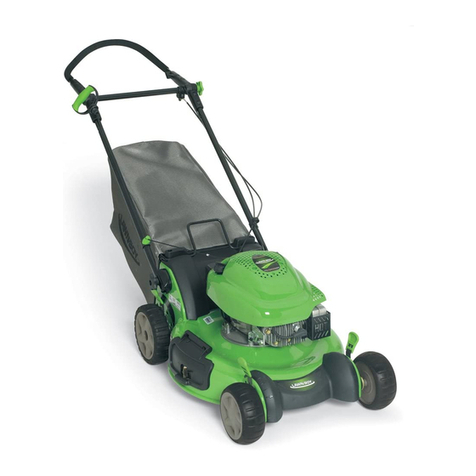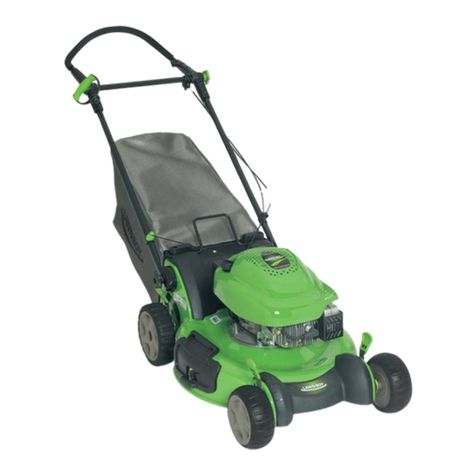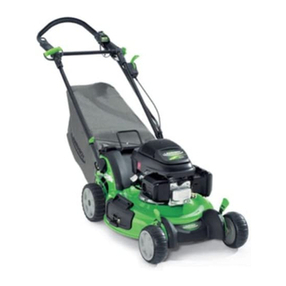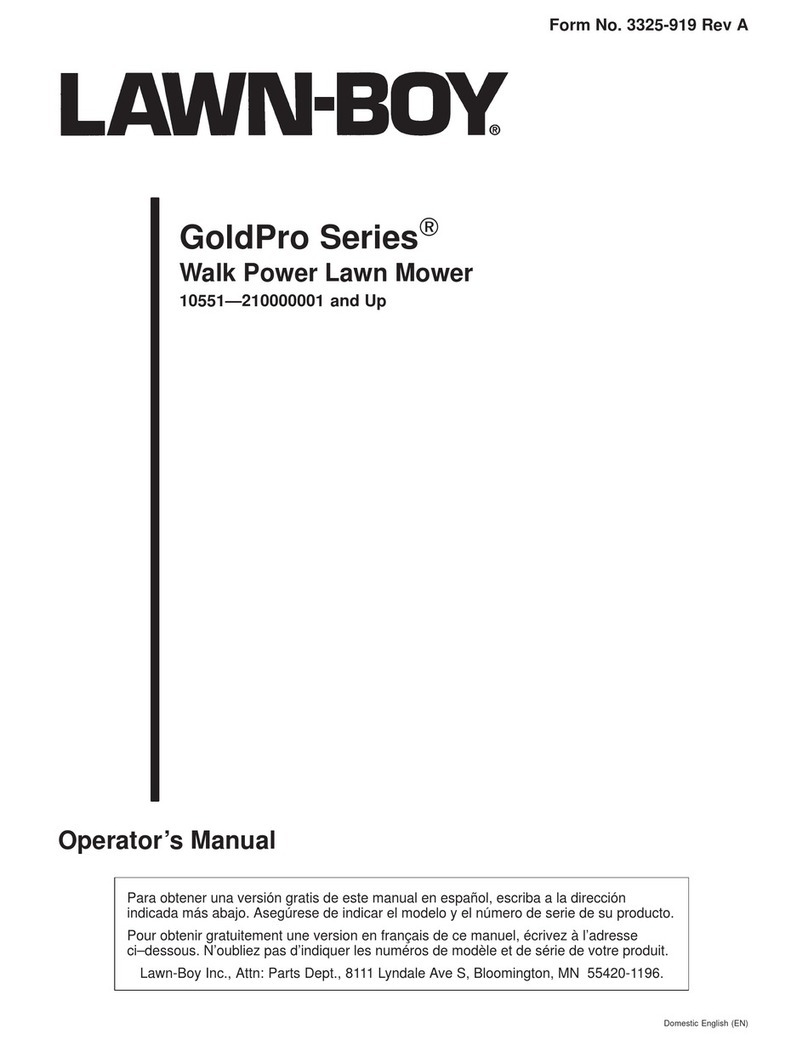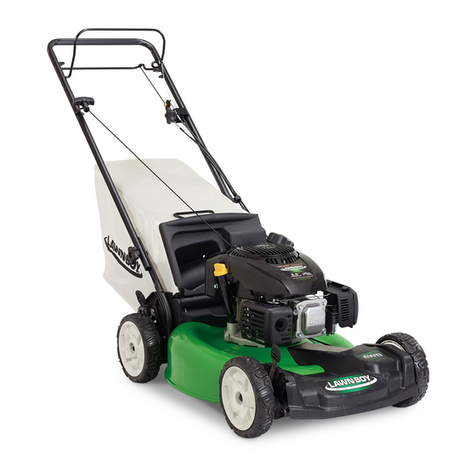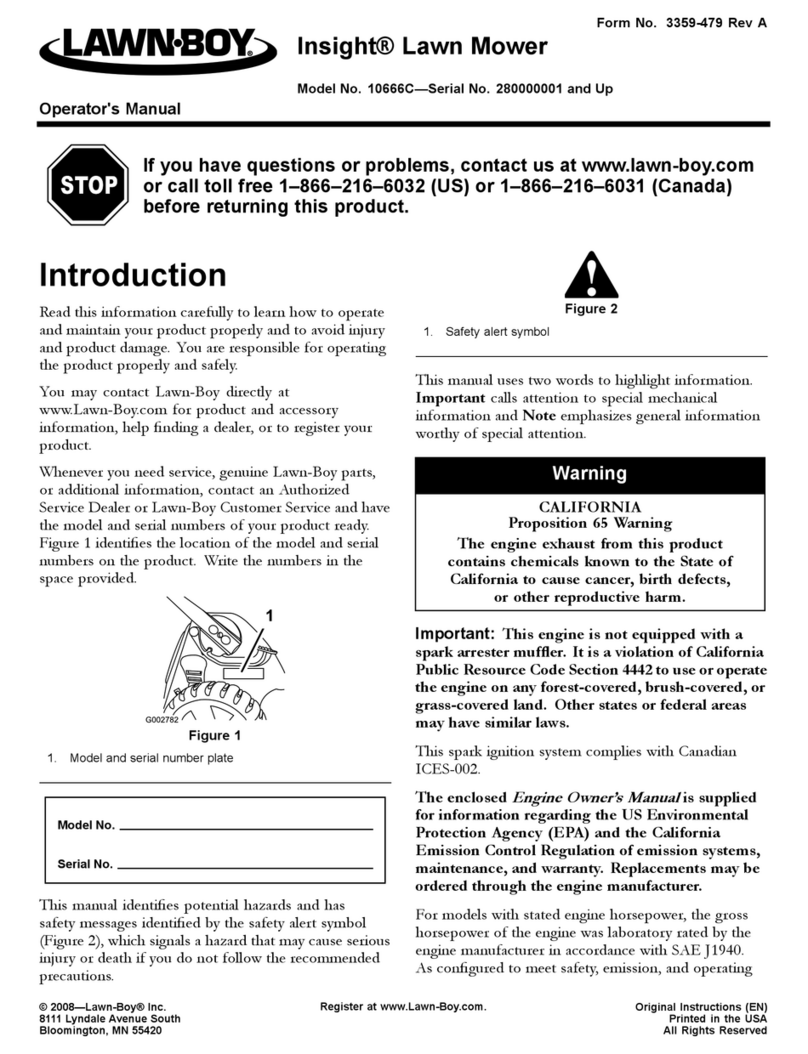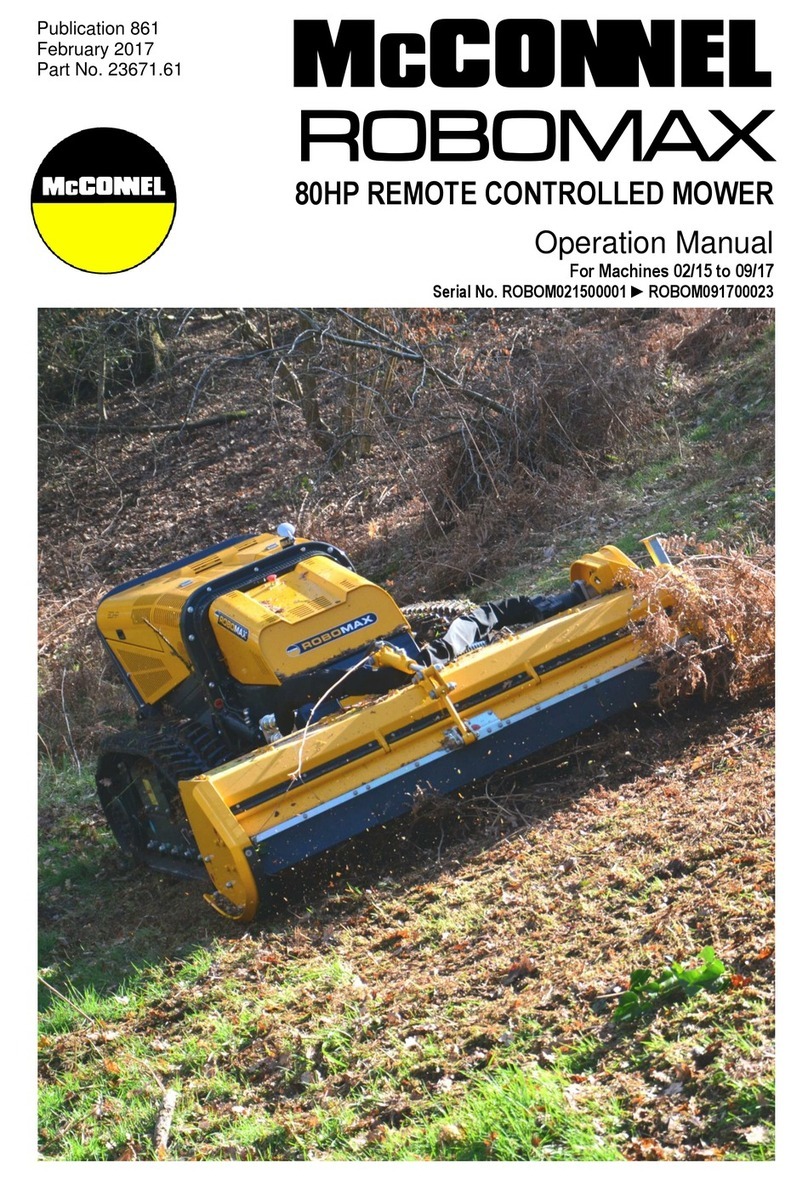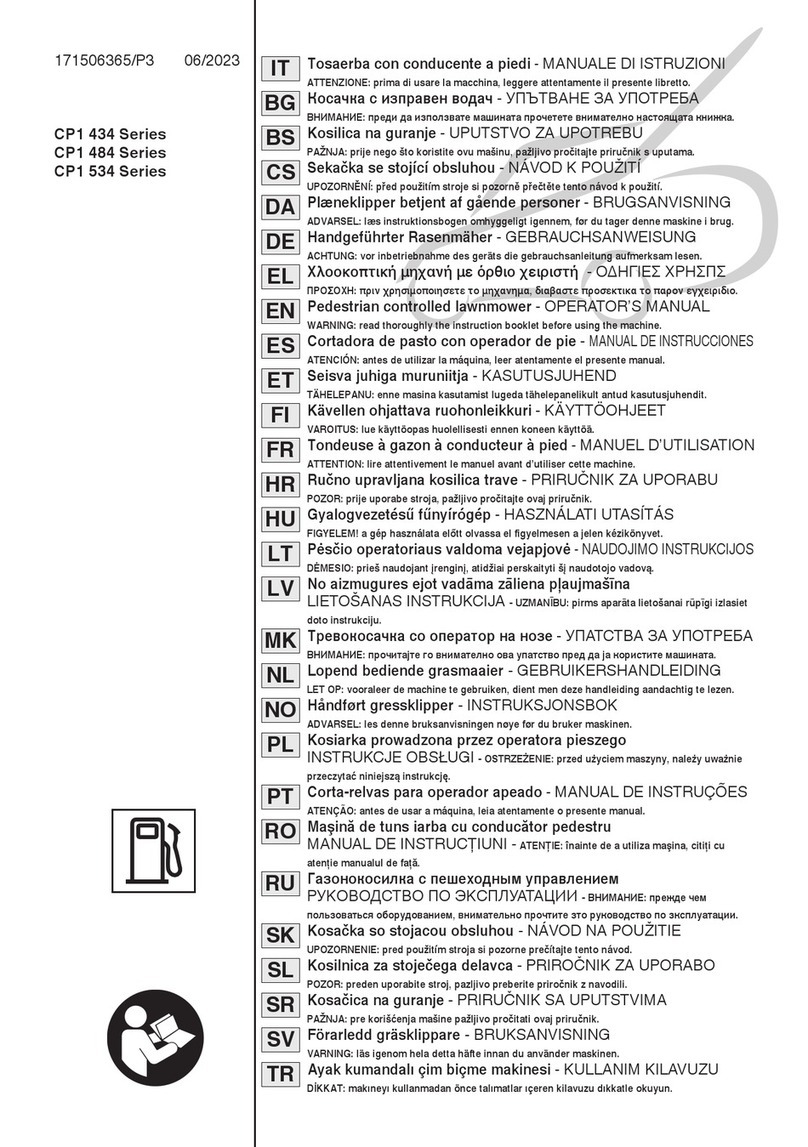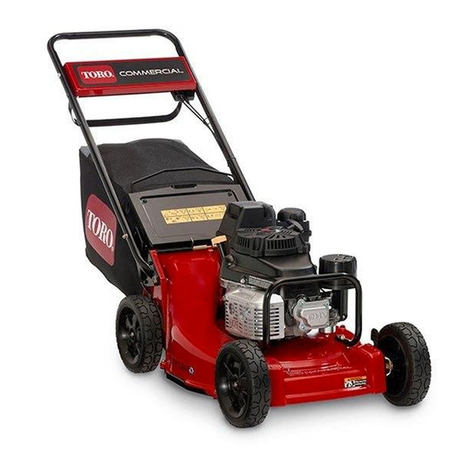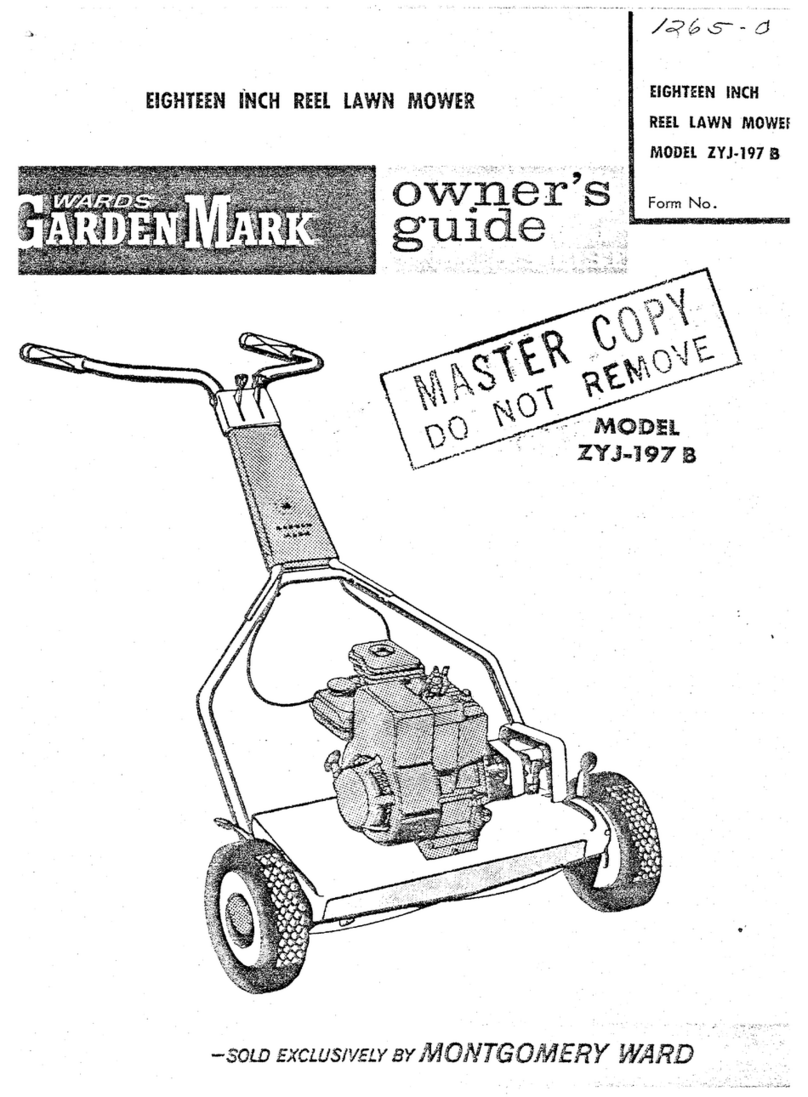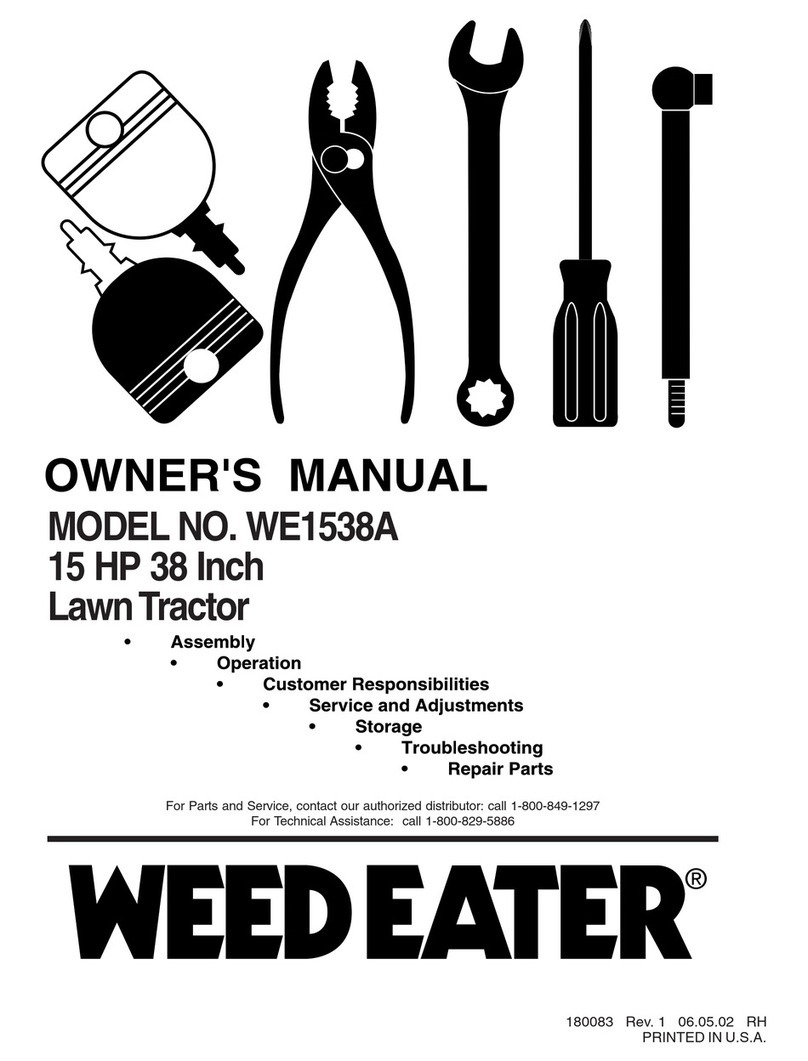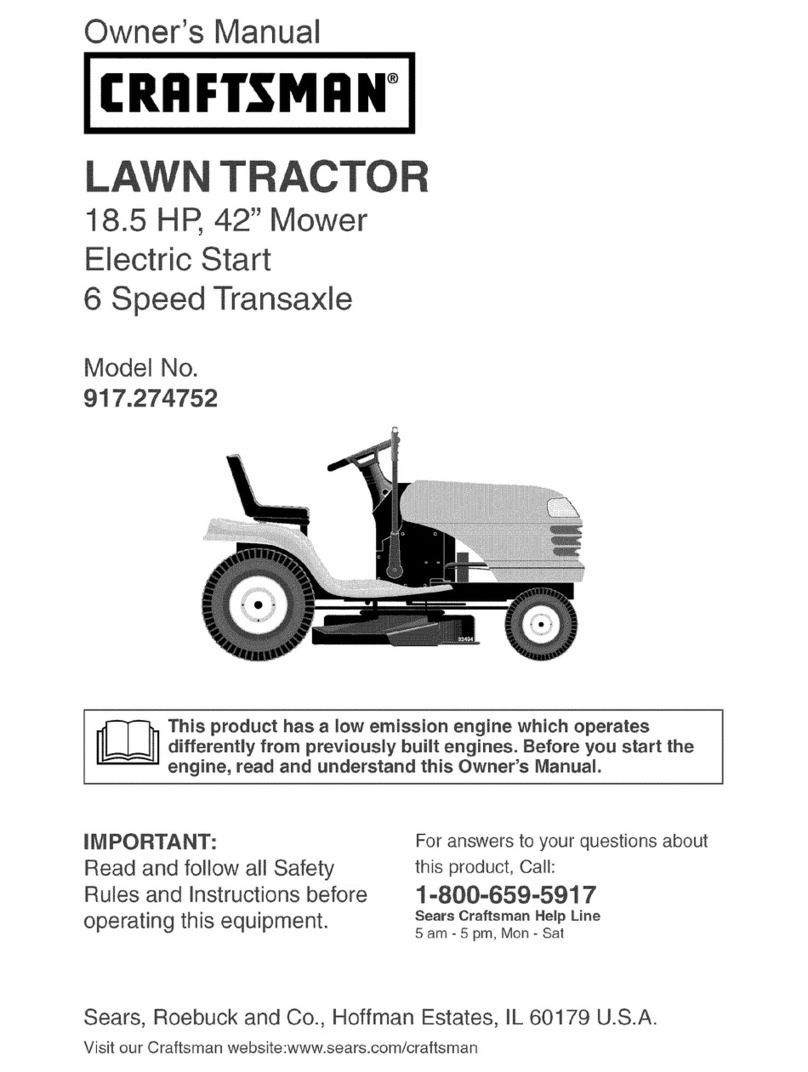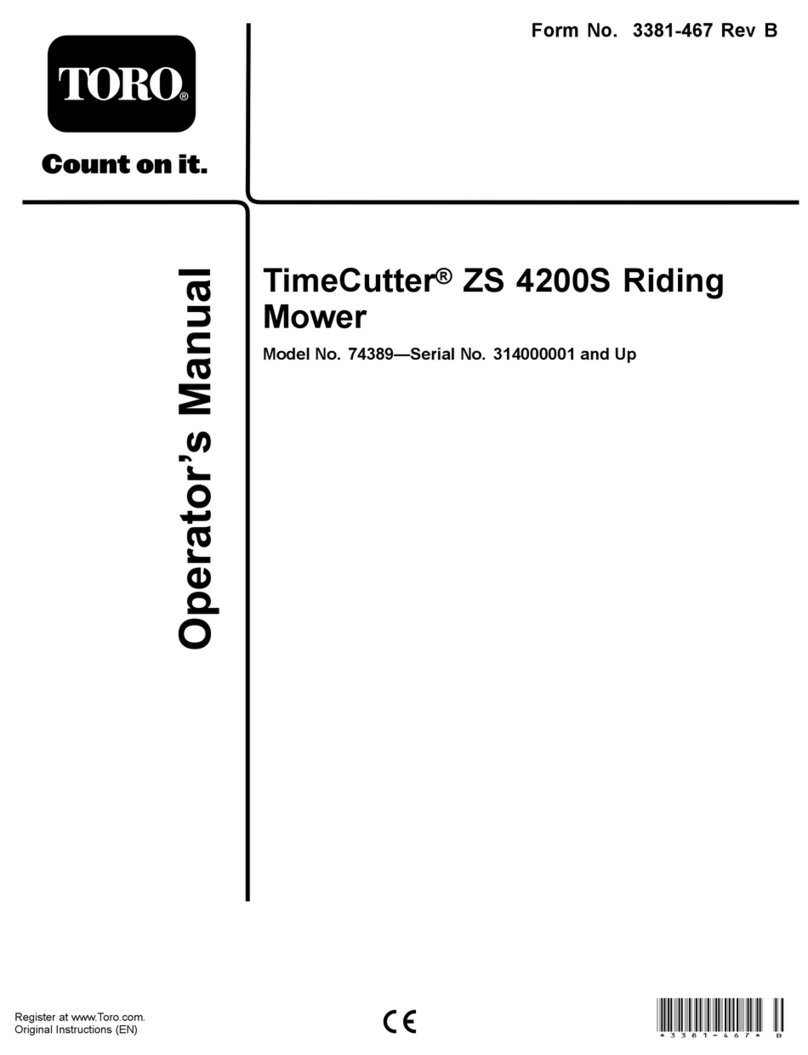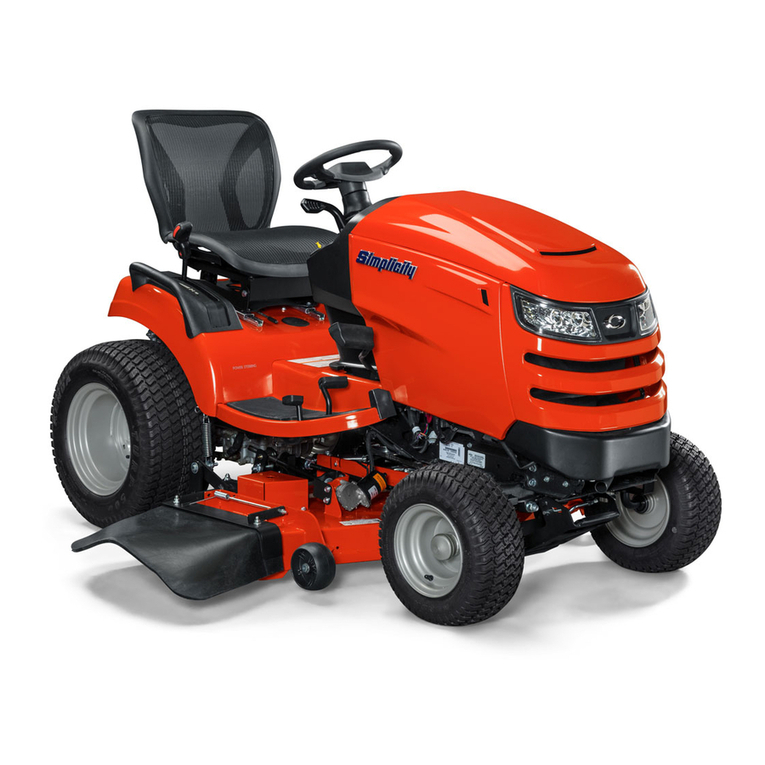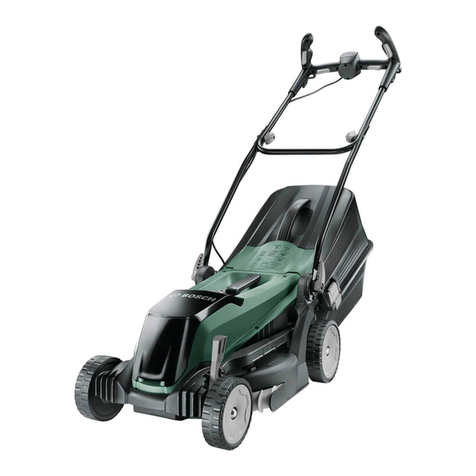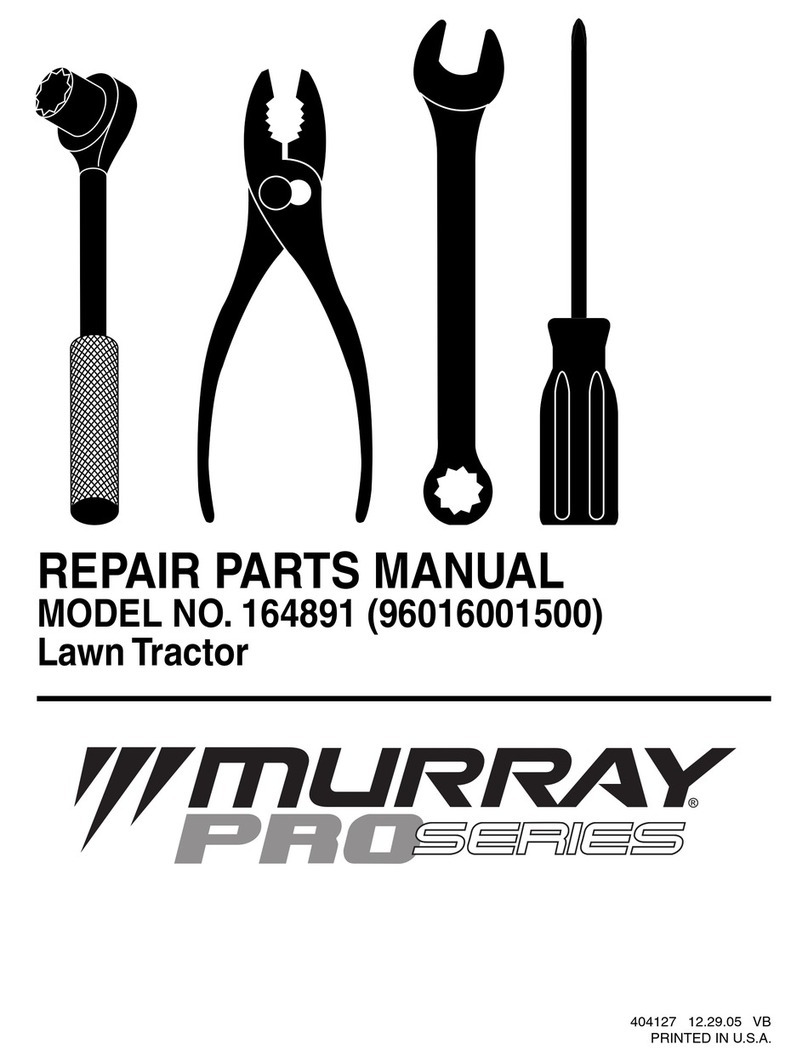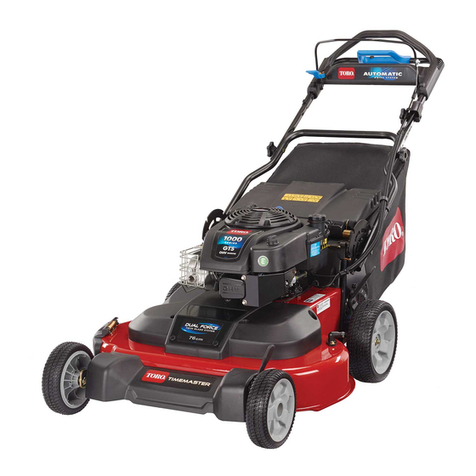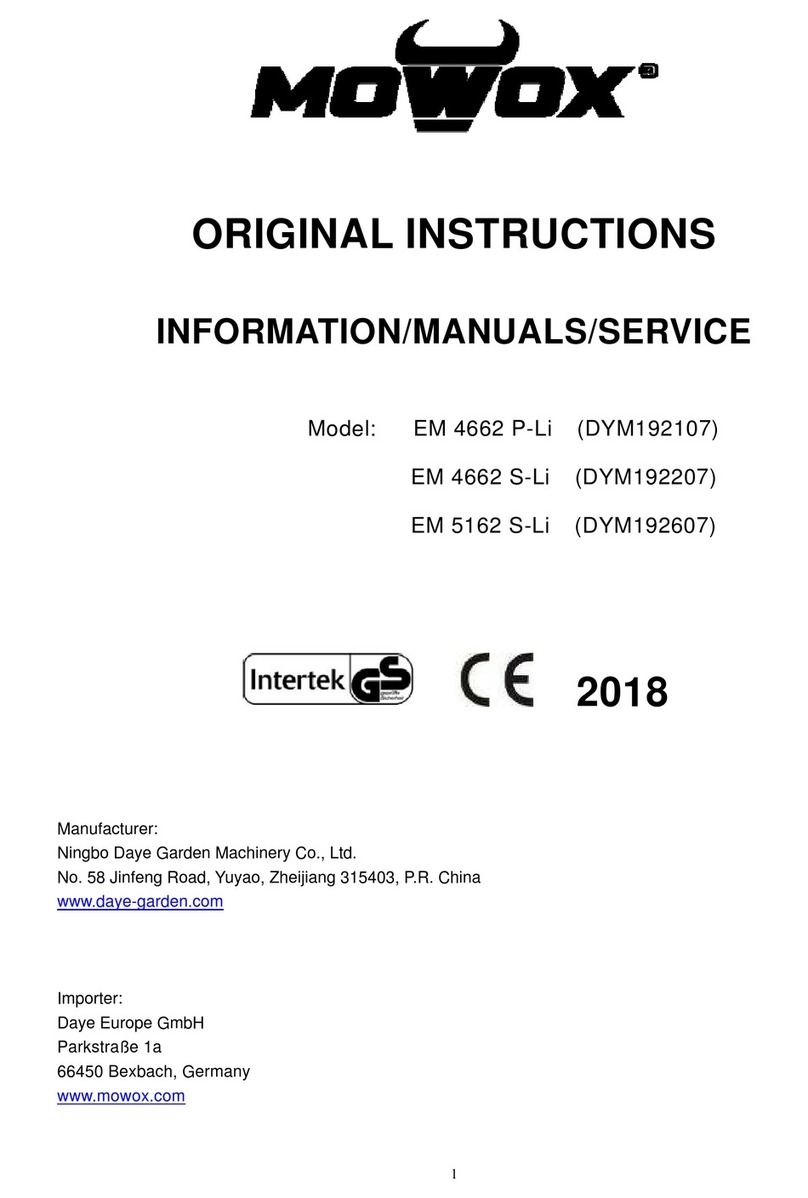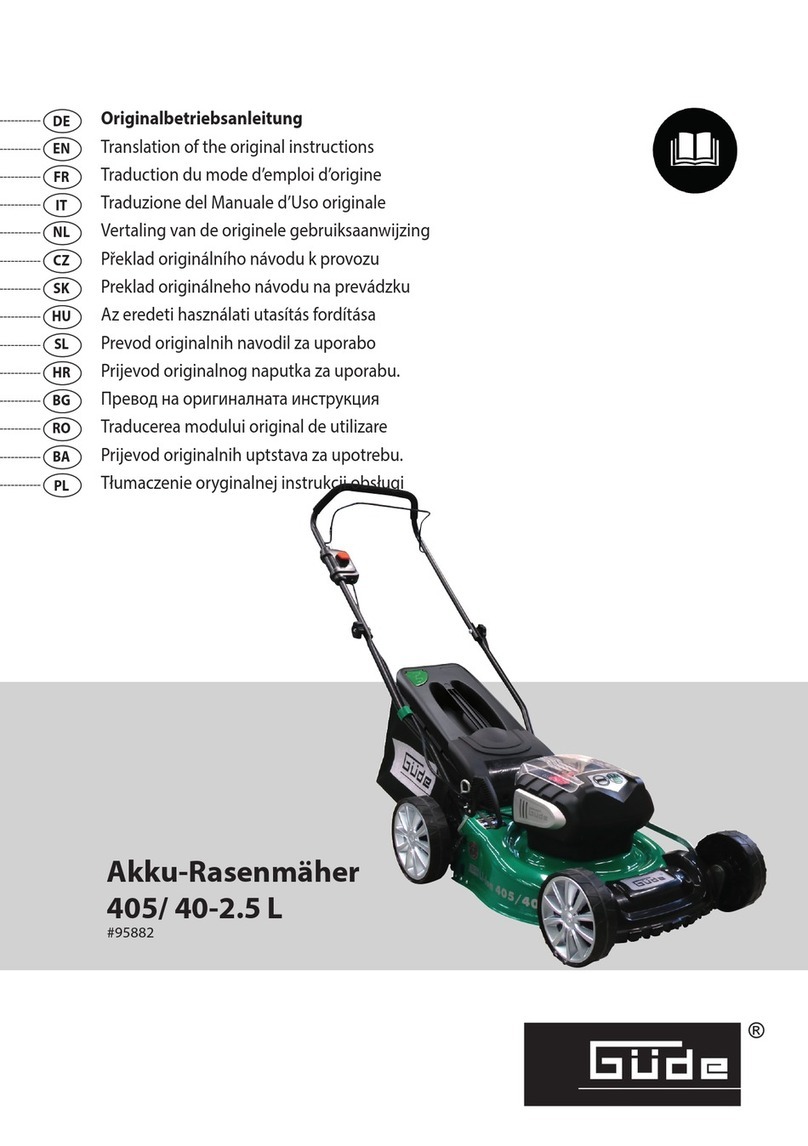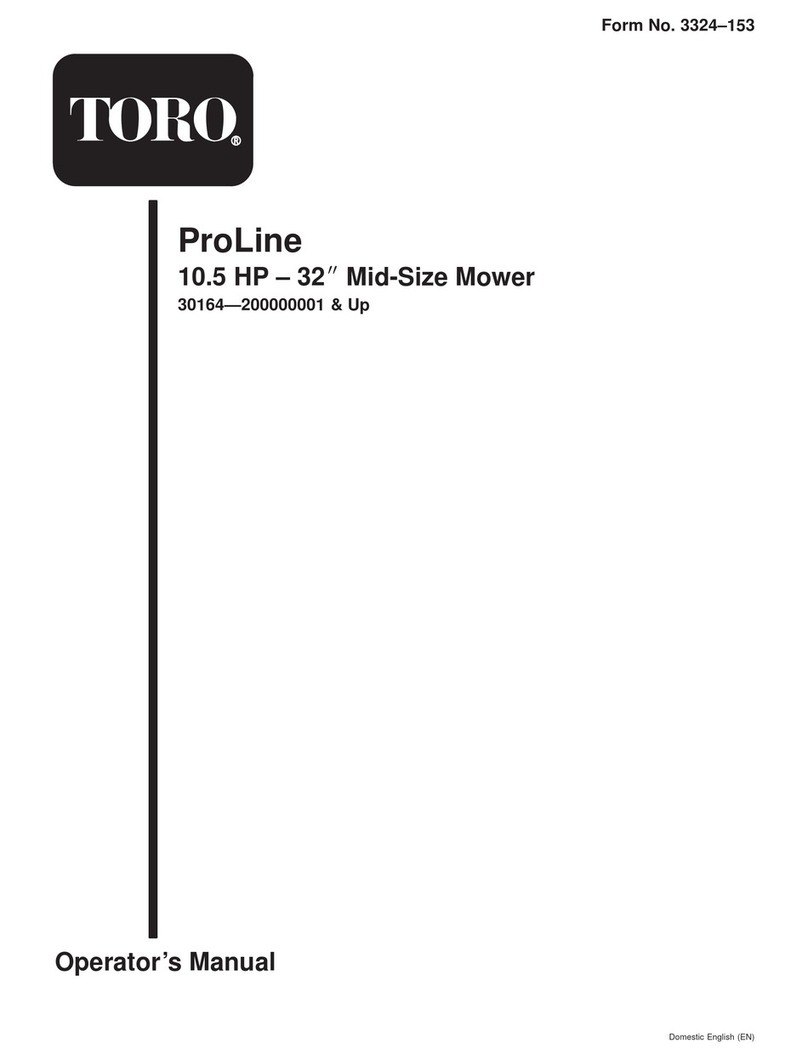
4
•Do not operate machine without the entire grass
catcher, discharge guard, rear guard, or other safety
protective devices in place and working.
•Never leave a running machine unattended.
•Stop the engine and wait until the blade comes to a
complete stop before cleaning the machine, removing
grass catcher, or unclogging the discharge guard.
•Operate machine only in daylight or good artificial
light.
•Do not operate machine while under the influence of
alcohol or drugs.
•Never operate mower in wet grass. Always be sure of
your footing; walk; never run.
•Disengage the drive system, if so equipped, before
starting the engine.
•If the machine should start to vibrate abnormally, stop
the engine and check for the cause immediately.
Vibration is generally a warning of trouble.
•Always wear eye protection when operating machine.
•See manufacturer’s instructions for proper operation
and installation of accessories. Only use accessories
approved by the manufacturer.
Slope Operation
Slopes are a major factor related to slip and fall accidents,
which can result in severe injury. Operation on all slopes
require extra caution. If you feel uneasy on a slope, do not
mow it.
•Mow across the face of slopes; never up and down.
Exercise extreme caution when changing direction on
slopes.
•Watch for holes, ruts, bumps, rocks, or other hidden
objects. Uneven terrain could cause a slip and fall
accident. Tall grass can hide obstacles.
•Do not mow on wet grass or excessively steep slopes.
Poor footing could cause a slip and fall accident.
•Do not mow near drop-offs, ditches, or embankments.
You could lose your footing or balance.
Children
Tragic accidents can occur if the operator is not alert to
the presence of children. Children are often attracted to
the machine and the mowing activity. Never assume that
children will remain where you last saw them.
•Keep children out of the mowing area and under the
watchful care of a responsible adult other than the
operator.
•Be alert and turn mower off if a child enters the area.
•Never allow children to operate the machine.
•Use extra care when approaching blind corners,
shrubs, trees, or other objects that may block your
view of a child.
Service
Safe Handling of Gasoline
To avoid personal injury or property damage, use
extreme care in handling gasoline. Gasoline is
extremely flammable and the vapors are explosive.
•Extinguish all cigarettes, cigars, pipes, and other
sources of ignition.
•Use only an approved gasoline container.
•Never remove gas cap or add fuel with the engine
running. Allow engine to cool before refueling.
•Never refuel the machine indoors.
•Never store the machine or fuel container where there
is an open flame, spark, or pilot light such as on a
water heater or on other appliances.
•Never fill containers inside a vehicle or on a truck or
trailer bed with a plastic liner. Always place containers
on the ground away from your vehicle before filling.
•Remove gas-powered equipment from the truck or
trailer and refuel it on the ground. If this is not
possible, then refuel such equipment with a portable
container, rather than from a gasoline dispenser
nozzle.
•Keep the nozzle in contact with the rim of the fuel
tank or container opening at all times until fueling is
complete. Do not use a nozzle lock-open device.
•If fuel is spilled on clothing, change clothing
immediately.
•Never overfill fuel tank. Replace gas cap and tighten
securely.
Engine exhaust contains carbon monoxide, an
odorless, deadly poison that can kill you.
Do not run the engine indoors or in an enclosed
area.
Warning





















